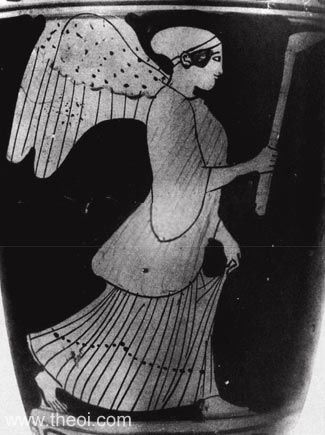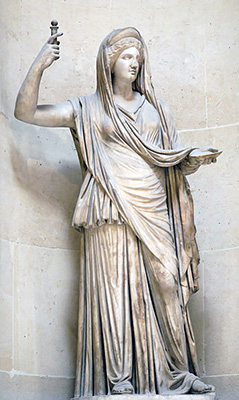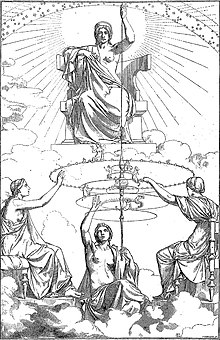Ananke (mythology)
Ananke (Greek Ἀνάγκη "need", " inevitability " ) was in Greek mythology the personification of the impersonal fate, as distinct from the associated of the Fates personal ( equitable ) fate and Tyche, which for both fortunately and unfortunately blind life is random. In tragedy seals it appears as the supreme power, which obey the gods themselves.
After Schreckenberg the word Ananke ( imposed yoke " yoke ", especially of slaves or prisoners ) goes back to the Semitic Chanak, from where it was taken in the Ionian and is already used by Homer in a figurative form. The original meaning was, however, still present, such as multiple Prometheus Bound by Aeschylus in later times.
In Plato, she is the mother of the Fates and the original creation powers.
In later times, Ananke plays a role in the hermetic.
According to Pausanias, was located on the acropolis of Corinth a sanctuary of Ananke.
In Roman mythology, she was named Necessitas.
Finally Ananke appears as the subject of a poem by Goethe, the fourth in his cycle Urworte, Orphisch:










